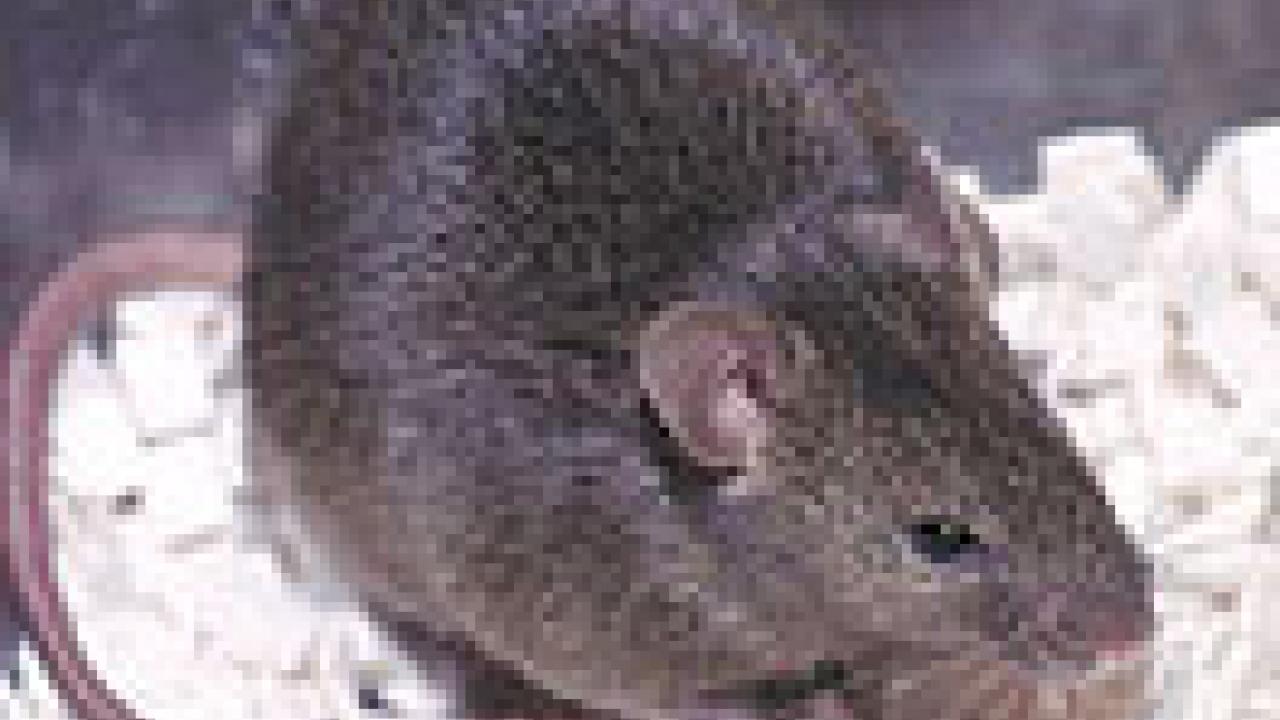Female mice receiving ovaries transplanted from much younger mice lived significantly longer than their counterparts without transplants, demonstrating for the first time that ovarian function plays a direct role in how mammals age, according to a team of researchers from the animal science, entomology and statistics departments at the University of California, Davis.
The findings will be published in the May 30 issue of the journal Aging Cell by Professor James Carey, a UC Davis biodemographer and longevity expert.
"This is a very interesting study, and it will stimulate a hunt for mammalian longevity hormones or signals produced by the reproductive system," said Dr. Cynthia Kenyon, a researcher at the University of California, San Francisco, whose pioneering studies in the nematode C. elegans first demonstrated a role for the reproductive system in the regulation of longevity.
Research conducted during the past two decades has demonstrated that aging in many species is linked to various aspects of reproduction, but little has been known about the direct effect of the reproductive organs on the longevity of mammals.
Building upon previous studies involving fruit flies and the nematode C. elegans as models, the UC Davis researchers set out to define the direct influence of the ovary on the longevity of mice by transplanting the ovaries of young mice into older mice whose ovaries had been removed.
The researchers removed the ovaries from 3-week-old mice. When those mice were either 5, 8 or 11 months old, each received an ovary transplant from a 2-month-old donor female. These three ages were chosen because they represent the early, peak and declining stages of reproductive capacity in mice.
The lifespan of the recipient mice was then monitored, as was the lifespan of two control groups of mice. Mice in one control group did not have their ovaries removed, and mice in the second control group had their ovaries removed at the age of 3 weeks, but did not receive ovary transplants.
The researchers compared life expectancy for the mice at the age of 11 months -- an age roughly equivalent to that of a 50-year-old woman -- when the mice are normally past their reproductive stage.
They found at this age that life expectancy was 60 percent greater for the females who received ovary transplants at 11 months than it was for the mice whose ovaries were removed without receiving a transplant and 40 percent greater than the mice that had no surgery at all.
This is equivalent to increasing the life expectancy of a 50-year-old woman from the current level in the United States of 80 years to 98 years.
When looking at survivorship among the different groups of mice, the researchers found that the median age of death in the mice receiving transplants at age 11 months was 430 days. In comparison, the median age of death was 316 days in the no-transplant group and only 250 days in the group that had no surgery at all.
"Interwoven with existing data from earlier studies, these findings underscore the important role the reproductive organs play in modulating aging and longevity in mammals," Carey said. "They also underscore the need to re-visit the relationship of longevity to indicators of reproductive aging in women, including the age when menopause begins, childbearing ability at later ages and childlessness."
He noted that this study sets the stage for future research to determine how transplanted young ovaries might extend the life of older mice that had not had their ovaries removed at a young age. Such a study might determine whether second transplants of young ovaries could further extend the life span of animals at older ages, and clarify the basic cellular and molecular mechanisms behind ovarian regulation of longevity.
Carey, the principal investigator on this study, is a biodemographer in UC Davis' entomology department and senior scholar at the Center for the Economics and Demography of Aging at UC Berkeley. He is the author of the book "Longevity: The Biology and Demography of Life Span," published recently by Princeton University Press.
Lead author on the study is Shelley Cargill, a reproductive physiologist in the UC Davis animal science department.
The study was funded by the Center for the Economics and Demography of Aging, the UC Davis Committee on Research and the National Institute on Aging.
Media Resources
Pat Bailey, Research news (emphasis: agricultural and nutritional sciences, and veterinary medicine), 530-219-9640, pjbailey@ucdavis.edu
James Carey, Entomology, (530) 752-6217, jrcarey@ucdavis.edu
